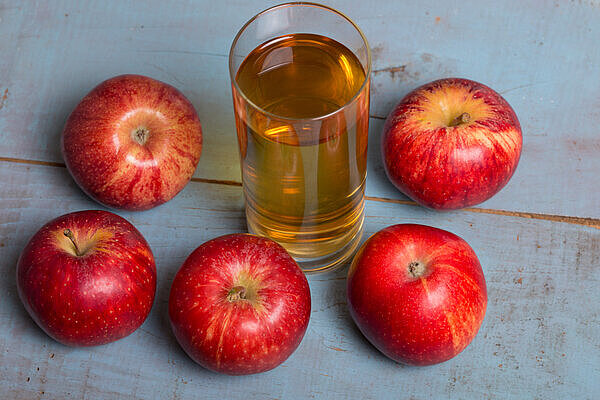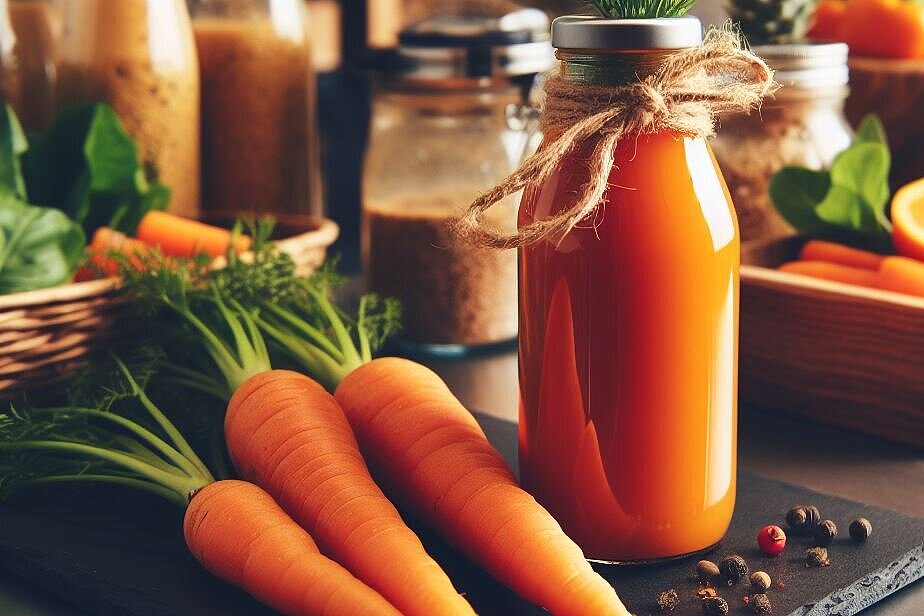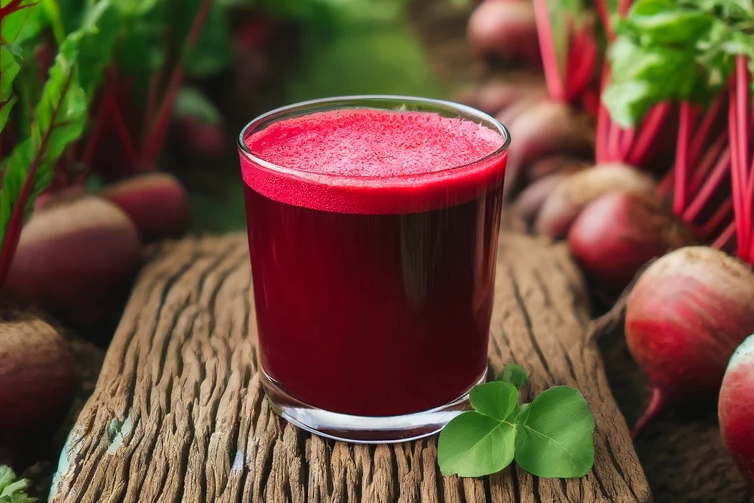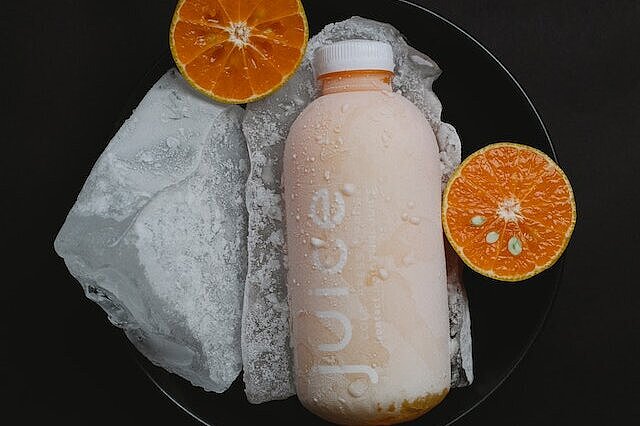Vegetable juice
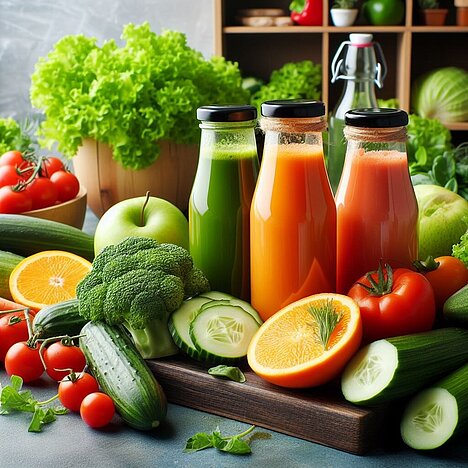
Vegetable juice is a drink made from different types of vegetables. It can be raw or cooked, depending on which vegetables are used. Vegetable juice can contain many healthy nutrients such as vitamins, minerals, fiber and antioxidants. But is vegetable juice also suitable for dogs? In this article, you'll find out everything you need to know about the pros and cons of vegetable juice for dogs.
Why are vegetables good for dogs?
Dogs are carnivores and omnivores, which means that they need plant-based food as well as meat to stay healthy. Vegetables provide dogs with high-quality carbohydrates, vitamins, minerals and trace elements. In addition, the fiber they contain ensures proper digestion and secondary plant substances are considered protective factors against numerous diseases. Dogs have a large selection of different types of vegetables. Depending on their needs and taste, they can supplement their food with vegetables.
Which vegetables are suitable for dogs?
Not all vegetables are equally suitable for dogs. In principle, dogs can eat many types of vegetables raw or cooked, but some should only be fed in small quantities or not at all. Here is a list of suitable and unsuitable vegetables for dogs:
Suitable vegetables
- Carrot: Carrots are healthy for dogs. They can help keep their teeth clean.
- Cucumber: Cucumbers consist mainly of water. This makes them an excellent snack on warm days. They are also low in calories and suitable for dogs that need to watch their weight.
- Fennel: Fennel can help regulate digestion.
- Kohlrabi:Kohlrabi contains many nutrients and can be fed both raw and cooked.
- Pumpkin : Pumpkin is rich in beta-carotene, vitamin A and potassium. It can be fed raw or cooked and is particularly suitable for diarrhea or constipation.
- Zucchini: Courgettes are healthy for dogs. It is low in calories and a good source of fiber and vitamins.
- Spinach: Spinach is safe for dogs in small quantities. It contains a lot of iron, calcium and vitamin K.
- Tomato:Tomatoes can be fed in small amounts, but only when they are ripe. They contain lycopene, an antioxidant that is good for the heart.
- Beet:Beetroot is rich in folic acid, vitamin C and iron. It can be fed raw or cooked.
Vegetables to be fed with caution
- Leaf lettuce: Most types of lettuce such as iceberg, romaine or lamb's lettuce are safe for dogs to eat. However, they have little nutritional value and can cause flatulence.
- Cabbage: Cabbage is rich in vitamins C and K as well as fiber. However, it should only be fed in small quantities as it can cause bloating and thyroid problems.
- Corn: Corn is a good source of carbohydrates and fiber. However, it should only be fed in moderation as it is difficult to digest and can cause allergies.
- Potato:Potatoes are rich in starch and potassium. However, they should only be fed cooked and without the skin, as raw potatoes are poisonous.
- Celery:Celery is healthy for dogs. It can help to keep breath fresh. However, it should only be fed in small quantities as it contains a lot of sodium.
Forbidden vegetables
- Onion: Onions are poisonous to dogs. They contain a substance that destroys red blood cells and can lead to anemia.
- Garlic: Garlic is also poisonous to dogs. It has the same effect as onions, but to a lesser extent.
- Avocado: Avocado is poisonous to dogs. It contains a substance that can cause heart problems and breathing difficulties.
- Paprika:Paprika is not poisonous to dogs, but it can cause stomach irritation and diarrhea. It is also very hot and can irritate the mucous membranes.
- Eggplant: Aubergine is not poisonous to dogs, but it can cause allergies. It also contains solanine, which is toxic in large quantities.
How is vegetable juice for dogs made?
Vegetable juice for dogs can be made from different types of vegetables. Care should be taken to use only suitable and fresh vegetables. You should also wash and peel the vegetables thoroughly to remove dirt and pesticides. You can then cut the vegetables into small pieces and place them in a juicer or blender. Depending on your taste, you can also add a little water or stock. The finished vegetable juice should be stored in a cool place and consumed within 24 hours.
What are the benefits of vegetable juice for dogs?
Vegetable juice for dogs has many benefits when fed in moderation. It can:
- increase fluid intake
- improve nutrient absorption
- Strengthen the immune system
- nourish the skin and coat
- clean the teeth
- promote digestion
- inhibit inflammation
- stimulate the appetite
What are the disadvantages of vegetable juice for dogs?
Vegetable juice for dogs also has some disadvantages if it is fed in excessive quantities or made from unsuitable vegetables. It can:
- contain too much sugar
- provide too many calories
- contain too much acid
- contain too much sodium
- contain too much oxalic acid
- trigger allergies
- cause flatulence
- Cause diarrhea
- cause vomiting
How much vegetable juice can a dog drink?
The amount of vegetable juice a dog can drink depends on various factors, such as
- the size of the dog
- the weight of the dog
- the dog's state of health
- the composition of the vegetable juice
In principle, vegetable juice should only be fed as a supplement to normal food and should not make up more than 10% of the daily calorie intake. This means that a 10 kg dog may drink about 100 ml of vegetable juice per day. Care should be taken to ensure that the vegetable juice is not too sweet or too sour and does not contain any poisonous or incompatible vegetables.
Vegetable juice for dogs can be a healthy and tasty addition to their food if it is prepared and dosed correctly. It can have many benefits for the dog's health and well-being, but also some disadvantages if it is fed incorrectly. Therefore, you should always pay attention to the quality and quantity of the vegetable juice and observe how your dog reacts to it.
If you notice any signs of hypersensitivity or poisoning in your dog, you should see your vet immediately. We are not a substitute for a vet, but we try to be as accurate as possible. Every dog reacts differently and we recommend you get a second opinion or consult your vet if in doubt.
Stay healthy and take good care of your four-legged friend!😊
Similar to Vegetable juice
Apple juice is a fruit juice that is pressed from apples. It usually contains water, sugar and various vitamins and minerals. Some apple juices are clear and filtered, others are naturally cloudy...
Carrot juice is the juice pressed from fresh carrots. Carrots are a type of vegetable that belongs to the umbellifer family and originally comes from Asia. They have an orange color, which is caused...
Beet juice is the pressed juice from raw or cooked beet. It has an intense red color and an earthy taste. Beet juice is often mixed with other fruit or vegetable juices to improve the taste or...
What is juice? Juice is a liquid that is squeezed or extracted from fruit or vegetables. There are many different types of juice, such as apple juice, orange juice, carrot juice or tomato juice....
